Abstract
Much more often than is commonly given credit, factors other than a substance's therapeutic efficacy contribute to its affect on the individual experience, its own proliferation, and society's response. To explore these dynamics, American history is examined from the perspective of analyzing the development of substance abuse. Of the conclusions borne out by this historical perspective, foremost was that psychoactive substance use has been an element in the American social ecology from its earliest beginnings.
The health professions have not always exhibited behavior in the interest of public health, and, most importantly, the federal response has often been plagued with outcomes that have been less desirable than many of the problems.
This historical review supports the thesis that drug-seeking behavior and the response it elicits are in a constant state of flux and cannot be adequately appreciated in isolation from the sociocultural and historical contexts in which they occur.
Full text
PDF
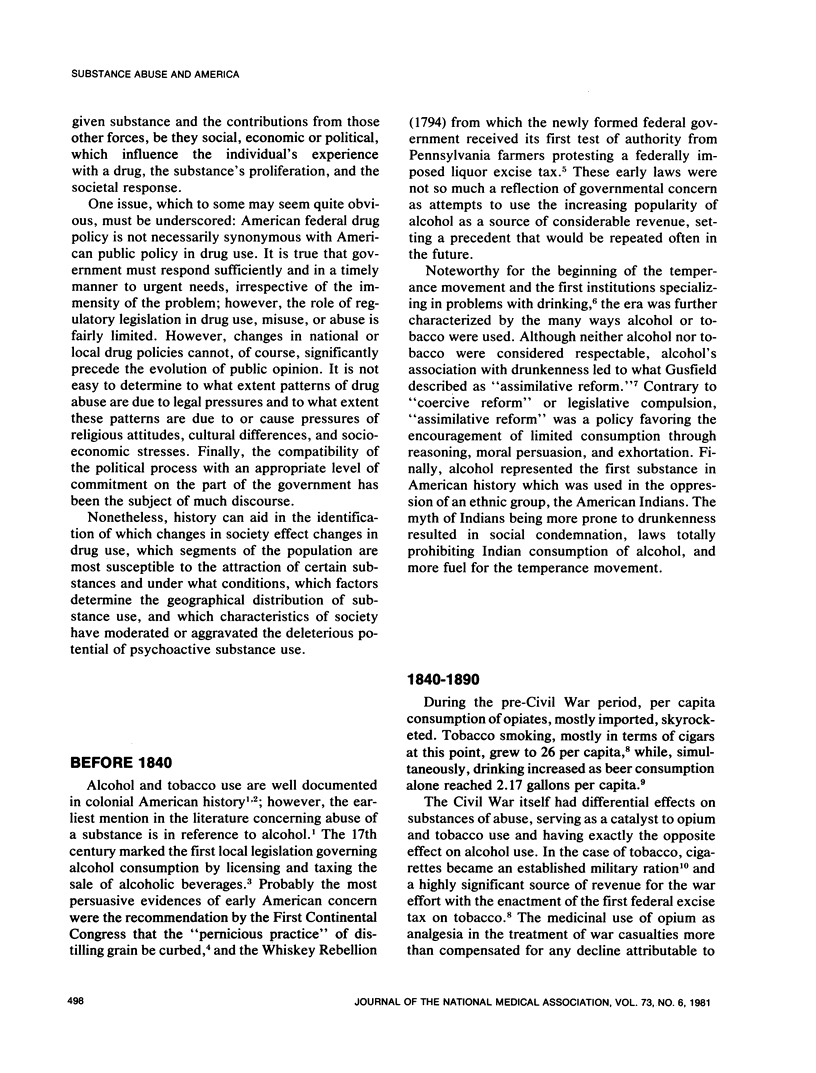
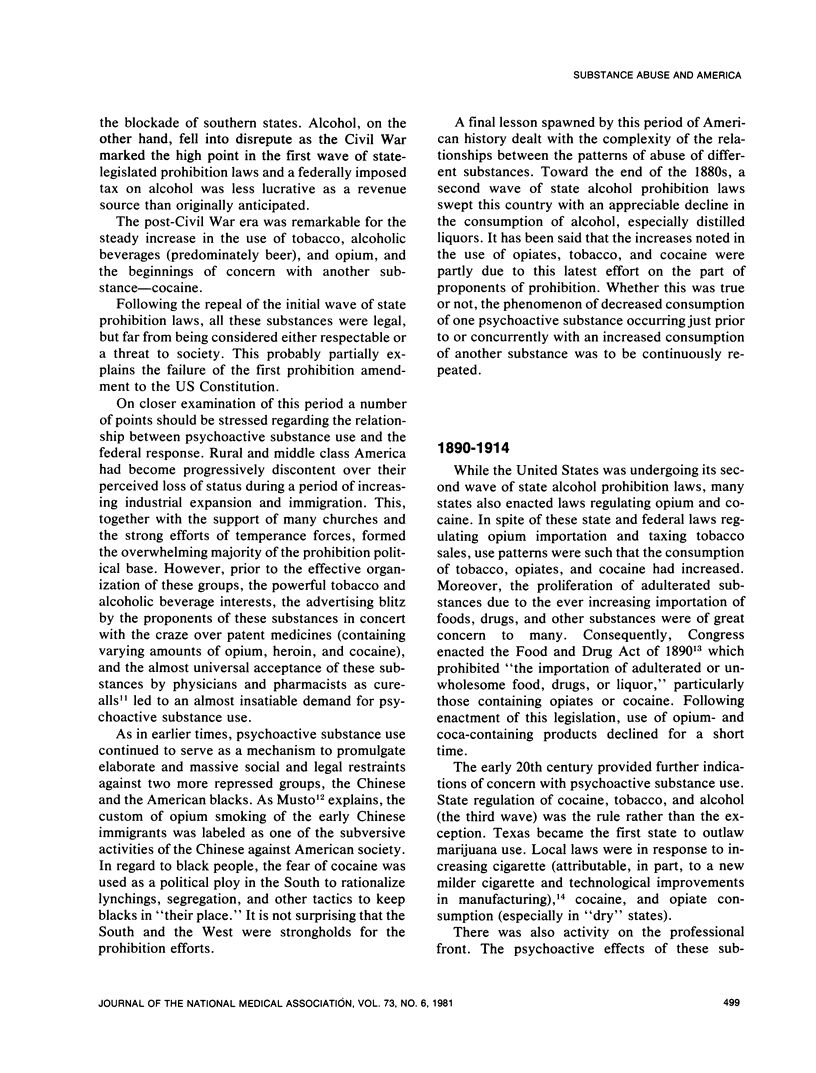

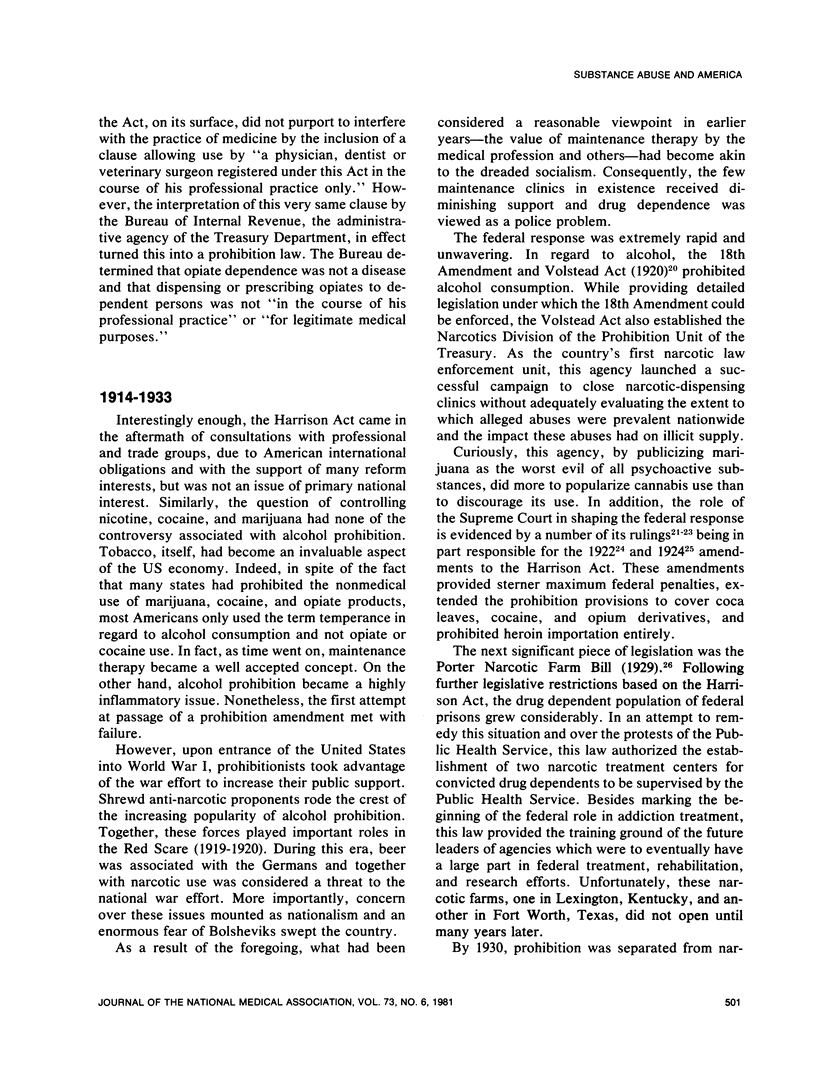
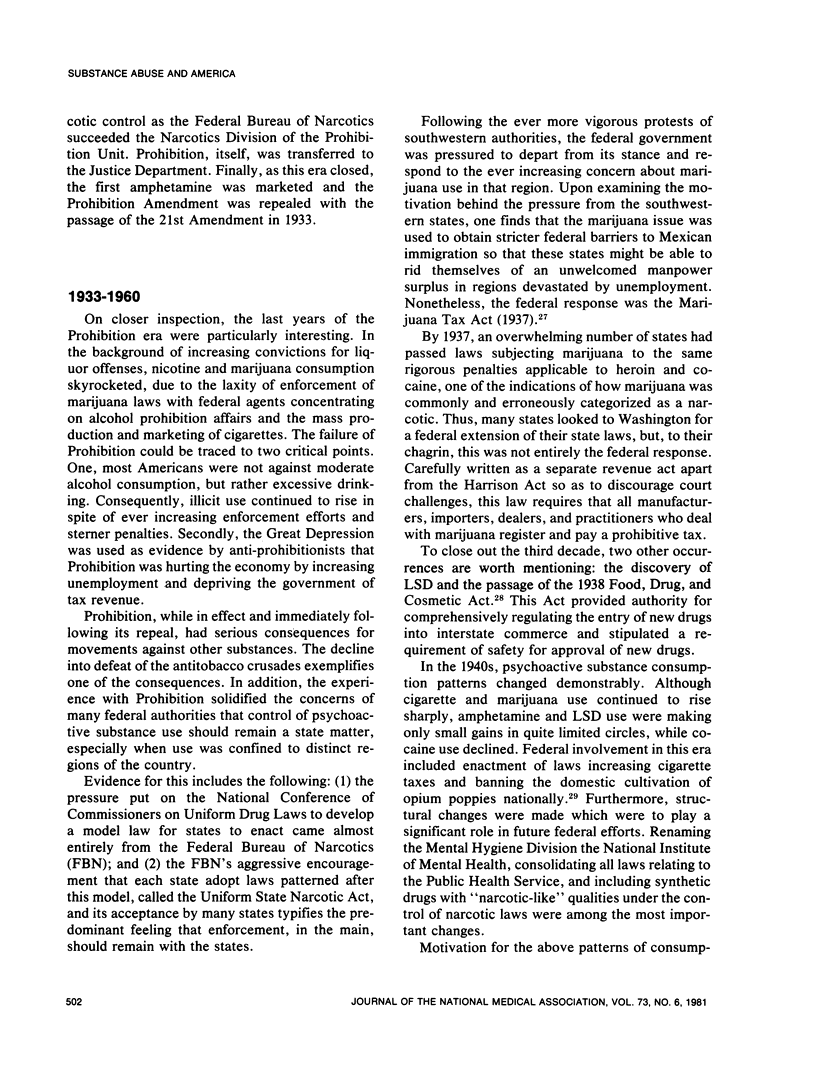
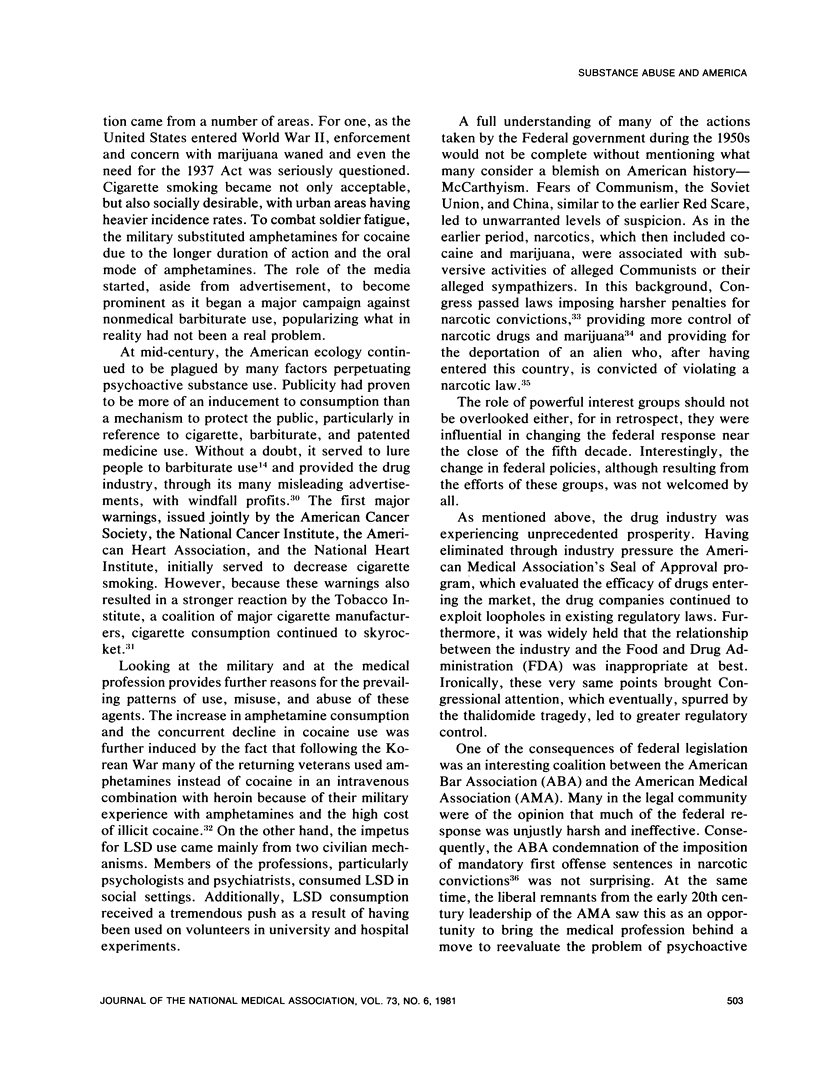
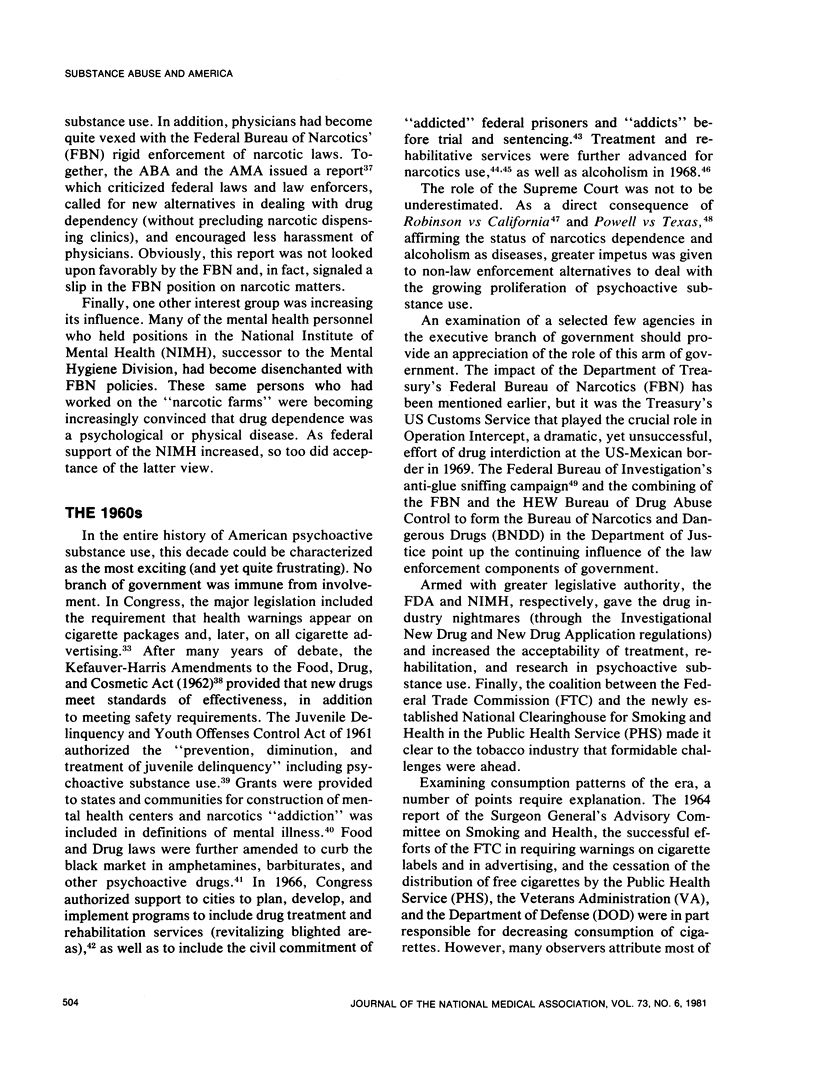
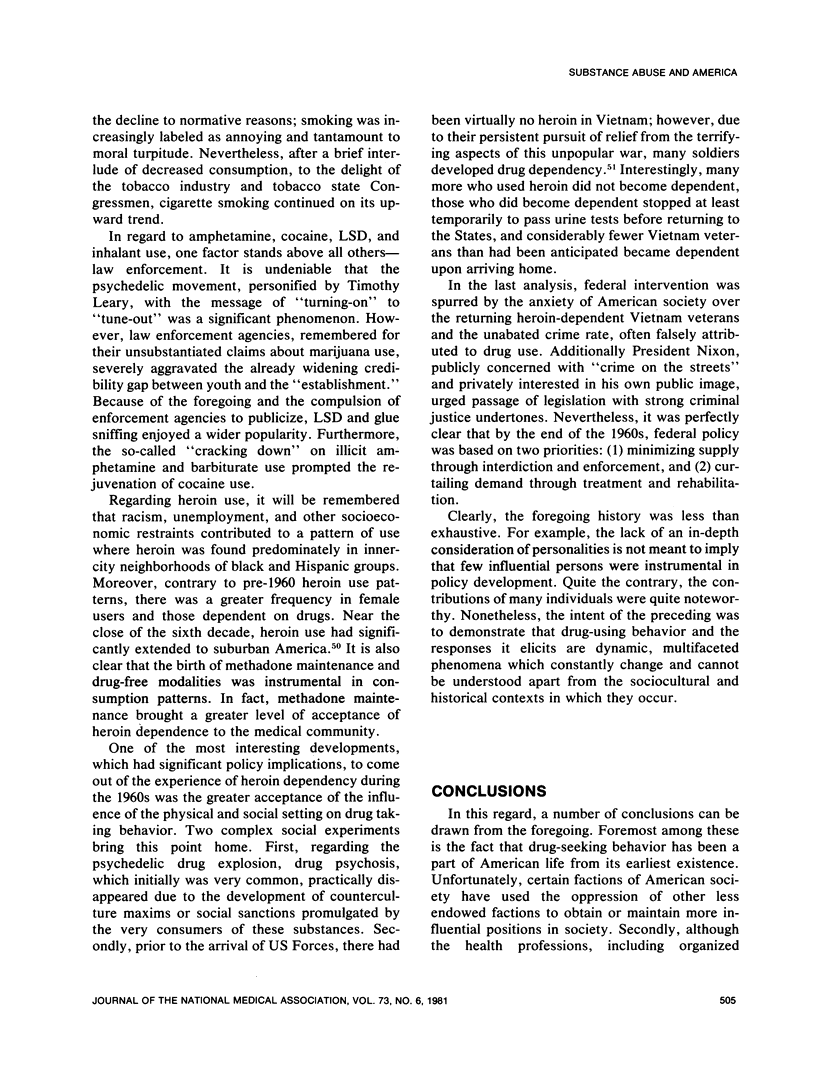
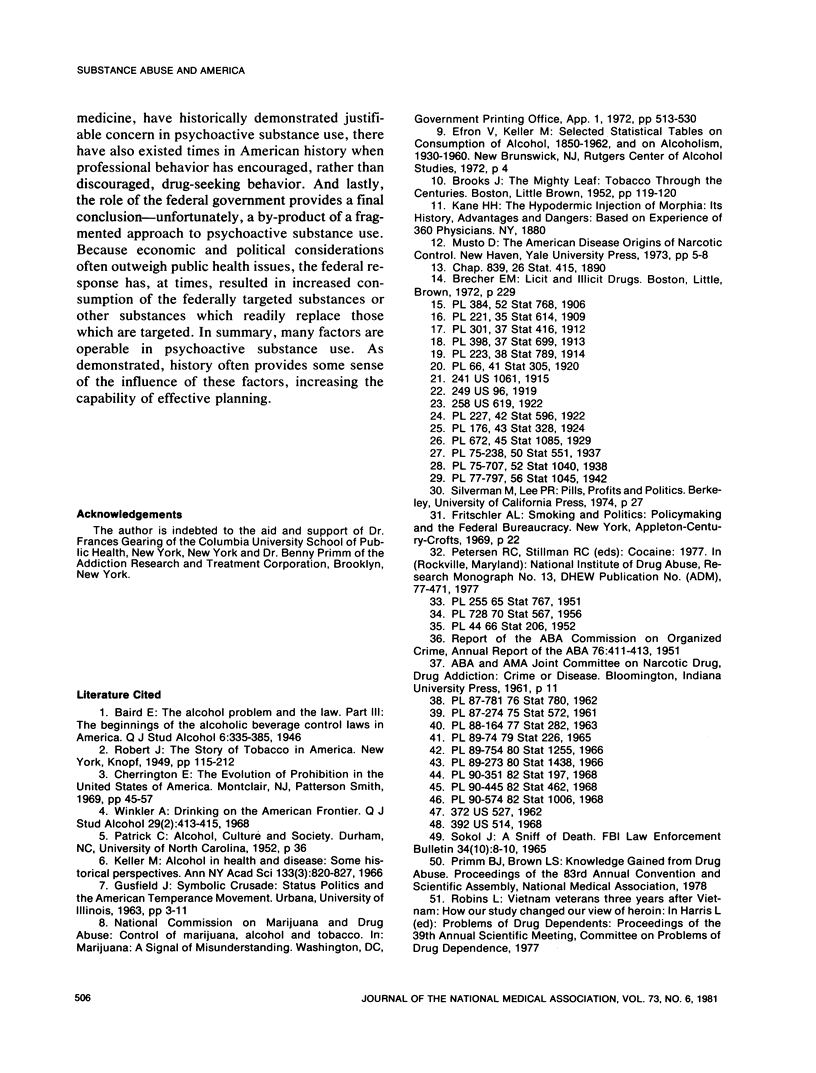
Selected References
These references are in PubMed. This may not be the complete list of references from this article.
- Keller M. Alcohol in health and disease: some historical perspectives. Ann N Y Acad Sci. 1966 Sep 23;133(3):820–827. doi: 10.1111/j.1749-6632.1966.tb50929.x. [DOI] [PubMed] [Google Scholar]
- Winkler A. M. Drinking on the American Frontier. Q J Stud Alcohol. 1968 Jun;29(2):413–445. [PubMed] [Google Scholar]


